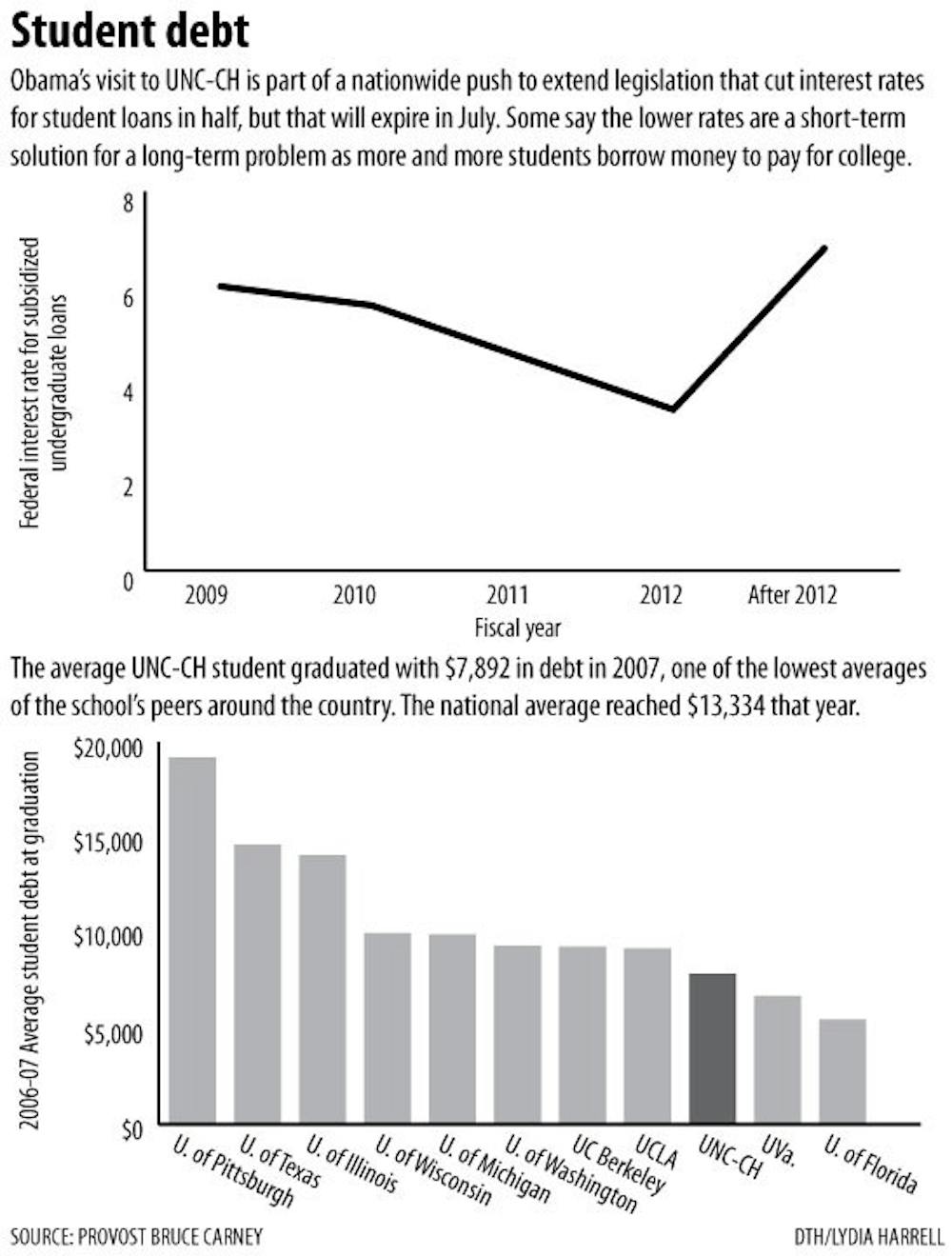Affordability has been a topic of discussion everywhere on campus this year — from the protests in board room meetings to the pragmatic discussions between student groups.
But this time that familiar topic will be addressed before the University community by the president of the United States himself.
Today, President Barack Obama plans to speak on a pressing topic for students nationwide: federal loans to pay for college.
More than seven million students in the country have loans with interest rates that will double in July, but Obama is pushing Congress to stall the increase.
His two-day tour with stops at UNC, the University of Colorado at Boulder and the University of Iowa will campaign to extend legislation that lowered interest rates for student loans in the past four years. Without the extension, the rates will revert to 2008’s levels — twice today’s rate of 3.4 percent.
On the national level, student debt has reached $1 trillion this year, outpacing credit card debt among young adults.
But rates of student debt at UNC are significantly lower than many of its peer institutions. Fewer UNC students borrow money from the federal government than the national average. Only one-third of UNC students use federal loans to pay for college.
With tuition rising at institutions around the country and in the UNC system, more students are looking to loans, said Steven Brooks, executive director for the N.C. State Education Assistance Authority.
“Loans are necessary,” he said. “The cheaper, the better.”



